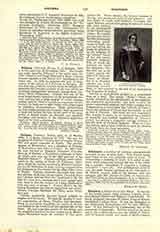

Colophon, a titular see of Asia Minor. It was one of the twelve Ionian cities, between Lebedos (ruins near Hypsili-Hissar) and Ephesus (Aya-Solouk). In Greek antiquity two sons of Codrus, King of Athens, established a colony there. It was the birthplace of the philosopher Xenophanes and the poet Mimnermus. It was destroyed by Lysimachus, one of the successors of Alexander. Notium served as the port, and in the neighborhood was the village of Clarus, with its famous temple and oracle of Apollo Clarius where Calchas vied with Mopsus in divinatory science. The cavalry of Colophon was renowned. Its pine-trees supplied a rosin or colophony highly valued for the strings of musical instruments. In Roman times Colophon lost its importance; the name was transferred to the site of Notium, and the latter name disappeared between the Peloponnesian War and the time of Cicero. The “Notitiae episcopatuum” mentions Colophon or Colophone, as late as the twelfth or thirteenth century, as a suffragan of Ephesus. Lequien (I, 723) gives the names of only four bishops: St. Sosthenes (I Cor., i, 1) and St. Tychicus (Tit., iii, 12) are merely legendary; Euthalius was present at the Council of Ephesus in 431, and Alexander was alive in 451. The ruins of the city are at the Castro of Ghiaour-Keui, an insignificant village in the vilayet of Smyrna, caza of Koush-Adasi.
S. PETRIDLS

